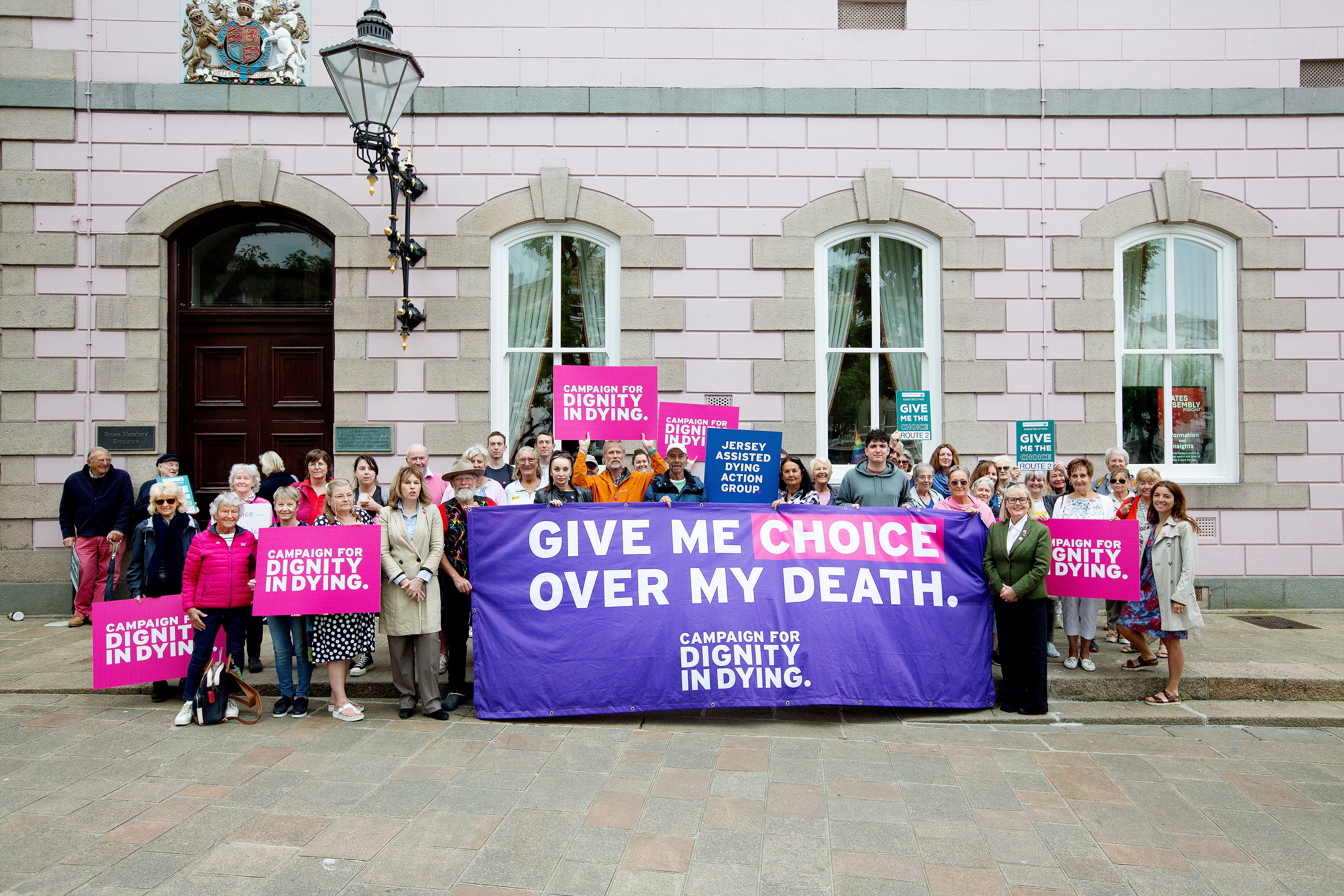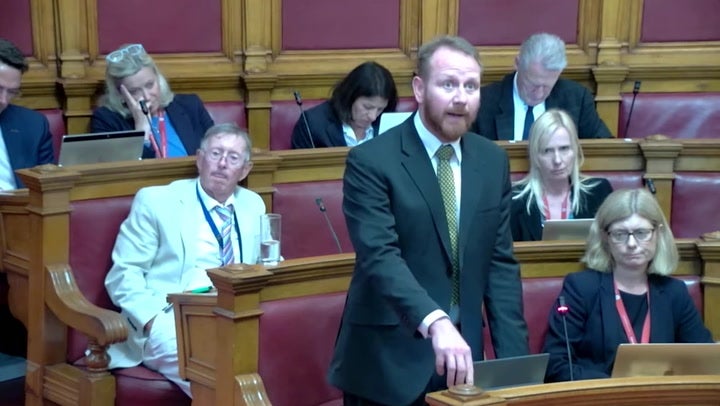Jersey set to move ahead with allowing assisted dying for terminally ill people
Island’s parliament votes in favour of establishing first service of its kind in British Isles as early as three years’ time
Your support helps us to tell the story
From reproductive rights to climate change to Big Tech, The Independent is on the ground when the story is developing. Whether it's investigating the financials of Elon Musk's pro-Trump PAC or producing our latest documentary, 'The A Word', which shines a light on the American women fighting for reproductive rights, we know how important it is to parse out the facts from the messaging.
At such a critical moment in US history, we need reporters on the ground. Your donation allows us to keep sending journalists to speak to both sides of the story.
The Independent is trusted by Americans across the entire political spectrum. And unlike many other quality news outlets, we choose not to lock Americans out of our reporting and analysis with paywalls. We believe quality journalism should be available to everyone, paid for by those who can afford it.
Your support makes all the difference.Jersey is to move ahead with allowing assisted dying for terminally ill people after the island’s parliament has voted in favour of drawing up laws to establish a service.
Following the impassioned debate over the divisive issue on Wednesday, an assisted dying service could be in place for residents as early as three years’ time.
It follows a report published in March setting out how such a service might work for adults resident in Jersey, with a voluntary, settled and informed wish to end their own life.

Members voted for a service for terminally ill people with a life expectancy of six months, or 12 months if they have a neurodegenerative disease – known as route one – by a majority of 32 to 14.
But an option, known as route two, to extend a law to people with an incurable physical condition which might not be terminal but is causing them unbearable suffering – was rejected by a majority of 27 to 19.
Most members voted in favour of an opt-out for health professionals, giving them a right to refuse to participate in assisted dying.
A majority also voted for a minimum timeframe between the point at which a person makes a first formal request for an assisted death and the administration of the substance that leads to that death – proposed as 14 days.
In 2021, just over three-quarters (78 per cent) of the members of a citizens’ jury in Jersey agreed that assisted dying should be permitted, and later that year, the States Assembly became the first parliament in the British Isles to decide “in principle” to allow assisted dying.

On Wednesday, the States Assembly heard an at times emotional debate on what is accepted to be a controversial issue. Multiple members became tearful or had voices breaking as they spoke in a lengthy debate before voting began.
Chief Minister Lyndon Farnham praised members for the “respectful, considerate and sensitive debate”.
Assembly member Constable Mike Jackson suggested a public vote by way of referendum would have been a better approach.
He said he felt the proposed legislation “should have been the subject of a referendum, given the clear split in views on the matter”, adding: “That may yet come, of course.”
Deputy Tom Coles, speaking of the right to choice both for those who support assisted dying and those who do not, had to pause to compose himself, before saying: “I know my wife would do anything for me. But if I get to my end… if I get to my end, I do not want her to do the things that I don’t want her to do for me.
“I want this to be my choice. And I think that, by denying anybody their right to choose, when they get into that situation, that is not fair.
“But I also respect that there are people who will not wish to do this service. There are people who do not want this to be their choice. And I also support that. So the fact that this entire process is completely opt-in and not opt-out is where I find my balance with all this.”

Fellow States Assembly member, Reverend Michael Keirle, known as the Dean of Jersey, warned of the risks of people coming under pressure to end their lives, especially under what is known as route two for those with an incurable physical condition which might not be terminal but is causing them unbearable suffering.
He told the Assembly: “It would be fantastically naive to think that people won’t come under some kind of indirect societal pressure, especially under route two.
“As a priest I’ve seen grooming at every level. In 35 years of ministry I’ve seen humanity at its absolute best in death and, sadly, at its absolute worst. As the old saying goes, where there’s a will, there’s a family.”
Deputy Elaine Millar acknowledged that, due to the divided nature of opinion on the controversial issue of assisted dying, “very large numbers of people would be disappointed by the outcome” no matter which way the vote went.
It is expected the process for drafting a law could take around 18 months, with a debate then taking place by the end of 2025.
If a law is approved, it is expected a further 18-month implementation period will then begin, meaning the earliest for it to come into effect would be summer 2027.
Jennifer Bridge, leader of Jersey Assisted Dying Action Group, described it as a “historic day for Jersey”.
She said: “I hope States Members will continue to give their support to this reform because the vast majority of us agree that an assisted dying law would be safer and kinder than the status quo.”
Sarah Wootton, from pro-change organisation Dignity in Dying, described the vote as a “victory for compassion and common sense” while Trevor Moore, chair of My Death, My Decision, said it as “an encouraging step”.
He said it was “regrettable” that route two had been voted down but that Jersey was nonetheless “moving in the right direction while England and Wales have stood still”.
Join our commenting forum
Join thought-provoking conversations, follow other Independent readers and see their replies
0Comments